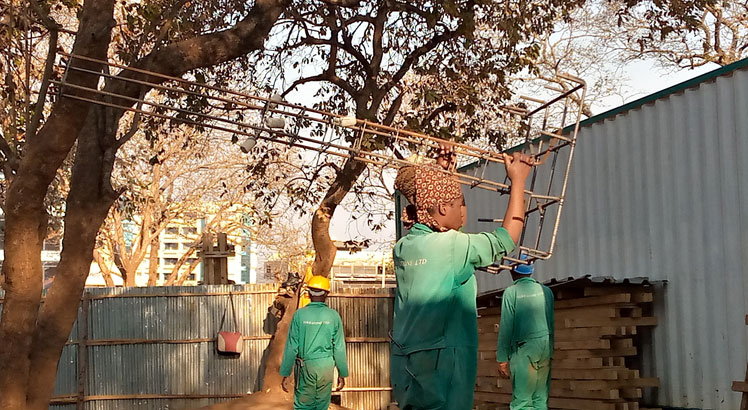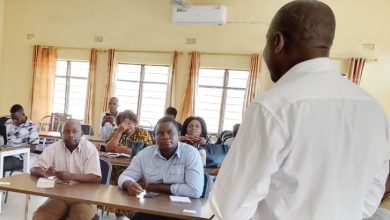Malawi, China in new projects
Malawi is poised to launch a fresh infrastructure blitz targeting economically-viable projects in sectors such as energy, transport and tourism.
The projects are coming under the Chinese Bridge and Road Initiative (BRI), a framework currently guiding Chinese investment in Africa and beyond that Malawi signed in 2022.
But Capital Hill will have to balance the need for the growth-enabling infrastructure largely financed by Chinese loans against the criticality of keeping the public debt—already standing at nearly 85 percent of Malawi’s economy—sustainable.
In a written response yesterday, Ministry of Foreign Affairs spokesperson Charles Nkhalamba, while admitting that Malawi has projects lined up under BRI, dismissed assertions of possible debt trap, saying the investment is well-thought and in line with the country’s development blueprint.

He said: “Malawi takes debt sustainability seriously and that is the reason a debt treatment agreement was concluded and signed with the Government of the People’s Republic of China in June 2024 as part of the implementation of the Extended Credit Facility [ECF] of the International Monetary Fund. More importantly, not all the support coming from China is debt, some projects are provided as grants.”
Nkhalamba backed the BRI, saying Malawi stands to benefit through agriculture, infrastructure and energy projects under the framework of Malawi 2063, the country’s long-term development strategy.
He said: “In particular, those [projects] in the Malawi 2063 First Ten-Year Implementation Plan [MIP-1] for 2021-2030 such as the Shire Valley Transformation Programme.
“Malawi Air Travel Development and Modernisation Programme; Rehabilitation and Upgrading Limbe-Marka Railway line and Rehabilitation of the Nkaya-Mchinji Railway Line; Development of Hydro Power Plants: Kholombidzo and Fufu Projects; and Lakeshore Tourism Programme.”
China is also expected to fund construction of a multibillion kwacha Judiciary complex in Lilongwe which has already taken off with initial funding from the Malawi Government.
In a written response, Minister of Transport and Public Works Jacob Hara said government will fund the first phase of the Judiciary complex project comprising a high security fence and the works started on July 1 2024 and are expected to be completed by June 30, 2025 when China will take over.
He also said the Judiciary complex, expected to ease office space, will be constructed with a grant and not a loan.
Said Hara: “Construction of Judiciary complex which is at design stage is being done by the Chinese Government. Phase one is 100 percent funded by the Malawi Government amounting to K2.9 billion and phase two will be done by the Chinese government.”
The complex is located opposite the Parliament Building, which was also supported by a Chinese grant and sits just a stone’s throw from yet another Chinese supported infrastructure, Umodzi Park comprising The President Hotel, Bingu International Convention Centre and the Malawi Square.
However, the Chinese offers to African nations, including Malawi, have been received with scepticism amid observations that some countries have been left highly indebted to the Asian nation.
In an interview yesterday, Oxfam in Malawi country director Lingalireni Mihowa said she hopes for improved debt management since loans from China to Malawi are concessional and the fact that China has agreed to restructure its debt to Malawi.
She said: “We urge Malawi and its lenders to expedite negotiations for the restructuring of other loans as soon as possible. Interest-subsidised concessional loans with extended repayment periods are crucial for the country’s financial stability.”
Mihowa said her organisation’s stand remains that government must ensure prudent use of every borrowed penny.
According to the China-Africa Economic Bulletin (2024) from Boston University Global Development Policy Centre, Africa’s debt to China was equivalent to 13 percent of the continent’s external debt in 2022.
China’s largest debtors in Africa, according to the report, were Angola with $20.98 billion, Ethiopia with $6.82 billion, Kenya at $6.69 billion, Zambia with $5.73 billion and Egypt with $5.21 billion.
In the cited countries, China has financed massive infrastructure development such as airports, marine ports and high-class road networks.
Both Ministry of Finance and Economic Affairs and Chinese Embassy in Malawi were yet to respond to our questionnaire that sought to appreciate the strategy to contain debt and the Chinese loan portfolio in the country.
But speaking to African Journalists in Beijing in May this year, Chinese Ministry of Foreign Affairs deputy director for African Affairs Guo Xin said the concept of “debt trap” was a Western manipulative script to discredit Chinese contribution to Africa.
He said it was ironic that the West are owed by African countries more than China, yet deliberately ignored their debt to call Chinese loans as a “trap”.
According to Xin, multinational institutions and banks played a crucial role in Africa’s loan profile as they account for more than 75 per cent of all debts owed by African countries.
In December 2023, Malawi’s total public debt stock stood at about K13 trillion, about 84.8 percent of the gross domestic product and was projected to rise to K14.4 trillion after factoring in the K1.46 trillion deficit in the 2024/25 National Budget.
The World Bank is Malawi’s largest creditor accounting for 33 percent of the country’s total external public debt.
In the 2023/24 National Budget, interest on public debt was estimated at K914.86 billion.




